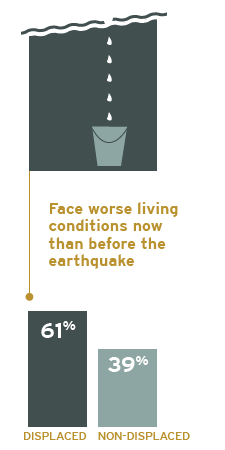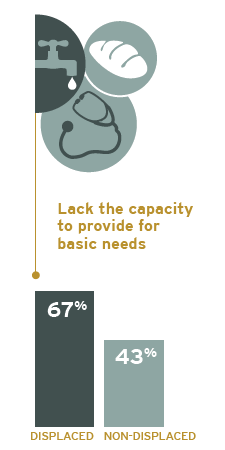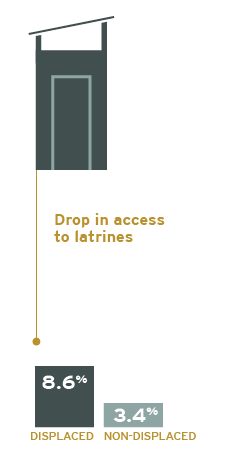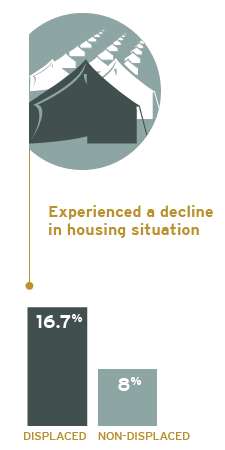

Living Conditions:
In a city already afflicted by alarming levels of poverty, displacement further undercut the wellbeing of IDP households by exposing them to greater insecurity and diminishing their access to housing and livelihoods.

Basic Needs:
Factors such as lost jobs, destroyed assets and new transportation needs converge and make it particularly difficult for IDP households to satisfy their basic needs, much less recover from the effects of displacement.
hover/touch images for more


Feeling Safe:
Security challenges undermining the safety of IDPs include thefts, violent evictions and gang activity, as well as residing in damaged homes and disaster-prone areas.

Access to security services:
IDP households were more likely to lack access to national and local protection mechanisms, prompting them to address their own security concerns, for example by establishing community patrols and speaking out against sexual violence.

Decline in Trust:
Levels of trust among neighbors have deteriorated since the earthquake, raising concerns over the future of community life in Port-au-Prince.
hover/touch images for more


Water:
IDP households registered a greater drop in household access to water after the earthquake than non-displaced households.

Latrines:
While both non-displaced and displaced households experienced a decline in access to latrines following the earthquake, displaced households were more negatively affected.

Healthcare:
After the earthquake, IDP households reported a larger reduction in household access to healthcare than non-displaced households did.
hover/touch images for more


Housing:
Displaced households—who typically faced worse housing conditions than those who did not leave their homes when the earthquake struck—were twice as likely as non-displaced households to experience a decline in their housing situation after the earthquake.
hover/touch images for more